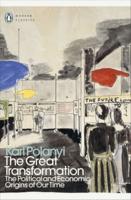Publisher's Synopsis
Lately, part-time employment has attracted a lot of public attention. There have been conflicting normative evaluations in terms of the benefits or disadvantages it brings to both employers and employees. Some critics regard it as a form of wage work which gives both employers and workers a high degree of flexibility. Others argue that it brings about employment inequalities and job insecurity to employees and would ultimately confine workers to a ghettoised arena of employment. These two opposing views generally overlook the complex reality that underlies employers? demand for part-time workers, the employment conditions of part-time employees and factors that shape participation in part-time work. This book seeks to examine the array of factors which underlie the demand for and the supply of part-time workers as well as the employment conditions of part-time employees by using Britain as a case study. The aim of this study is to provide a thorough empirical account of the various issues related to part-time employment. It also attempts to draw out some of the policy implications of the findings.










